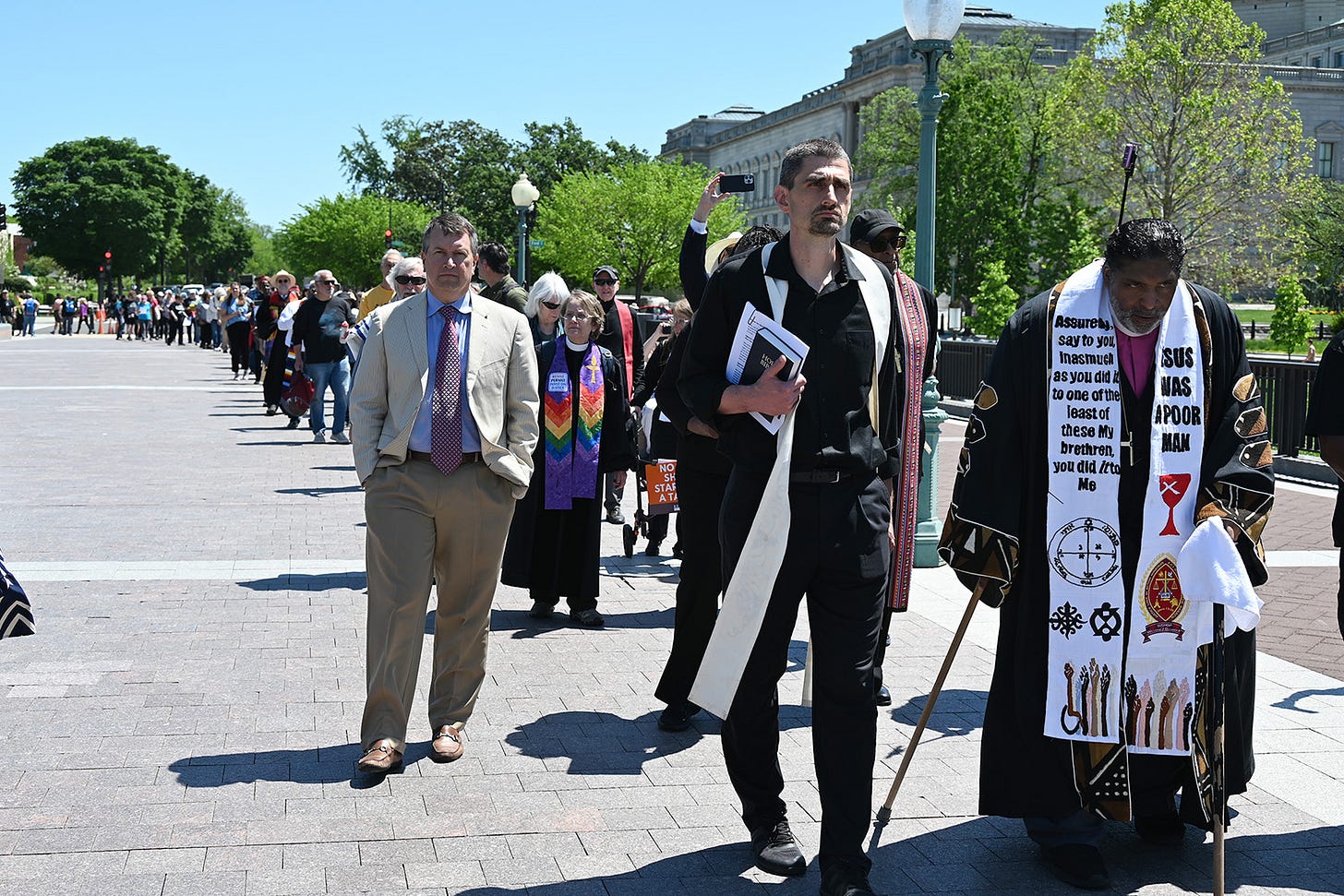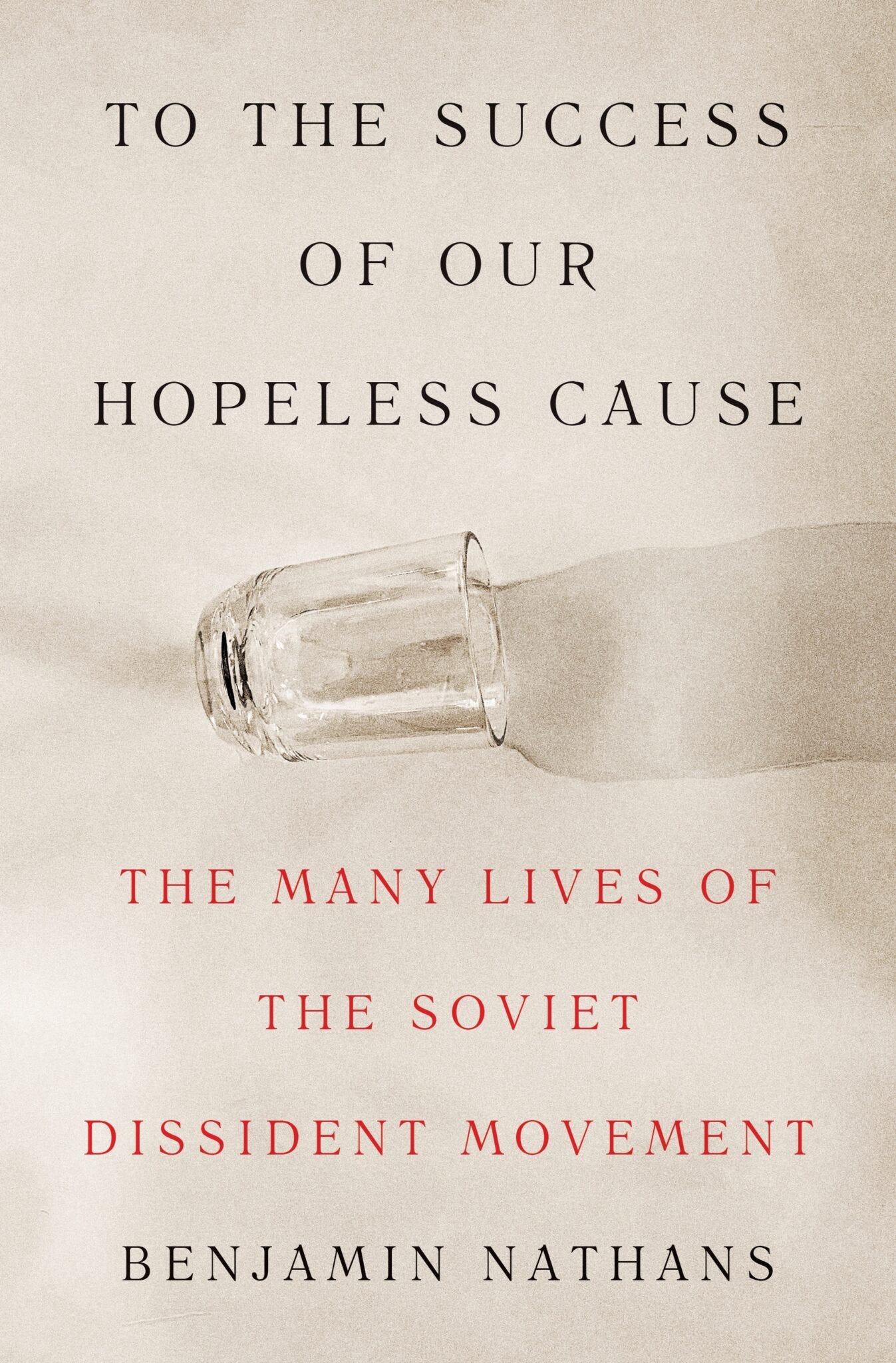This week the Pulitzer Prize for nonfiction was awarded to a book by Benjamin Nathans entitled To The Success of Our Hopeless Cause. It is a history of the dissident movement in the Soviet Union that began to emerge in the 1960s: people like Andre Sakharov, Alexander Solzhenitsyn and many others who have been unknown to us.
Nathans’s book describes how the dissident movement undermined the Soviet system and hastened its collapse. Nathans writes that one possible lesson from their history is “for the possibilities of public engagement under circumstances that appeared even more hopeless than our own.”
“To the success of our hopeless cause” was a toast these dissidents would raise at their unauthorized secret meetings.
I’ve been thinking about that quote all week.
So many of my causes seem hopeless right now.
Last year The Guardian surveyed 380 of the world’s top climate scientists (all members of the Intergovernmental Panel on Climate Change) and found them hopeless, broken, in despair, terrified, but determined to nevertheless keep on fighting. (https://www.theguardian.com/environment/ng-interactive/2024/may/08/hopeless-and-broken-why-the-worlds-top-climate-scientists-are-in-despair)
The world’s response has been slow and inadequate according to the Survey, not because of finances, the lack of scientific understanding or a shortage of green technology. The world’s biggest problems are lack of political will and vested corporate interests.
But the struggle for political will also seems hopeless.
After the Cold War ended the number of democratic governments began to surge around the world. By the early 2000s more countries were functioning democracies than ever before. Democracy was on the rise.
But then the backslide began. A number of new authoritarian leaders arose (Putin, Erdogan, Orban, Modi). Democracy entered a time of troubles even in the U.S., the U.K., and the E.U. Social media fueled political polarization, fake news, and neo-fascism.
And last week, the President of the European Union, Ursula von der Leyen declared, “The west as we knew it no longer exists.”
So if things are going to change not only in regard to democracy, but also the climate crisis, we need what climate scientist James Speth called “a spiritual and cultural transformation.”
But how does something like that happen? It’s a complex and somewhat mysterious alchemy.
Jack Jenkins of Religion News Service (RNS) reported on Wednesday about a sit-in by Sen. Corey Booker and House Minority Leader Hakeem Jeffries on the U.S. Capitol’s front steps. Their public prayer and faith-filled language is part of a new strategy by Democrats to engage faith leaders in the push back against the Republican-led budget proposal and the Trump administration.
But the vision of those who follow in the steps of the One who taught them to pray “THY kingdom come, THY will be done” is much bigger than just being anti-Trump.
If things are going to change we need to do something besides what we’ve always done only with more urgency, a louder voice, and a little religious symbolism. We need to be more than just a partisan political party at prayer. Our vision needs to be big enough to challenge all political parties. The New Testament book of Hebrews speaks of a kingdom that cannot be shaken. That sounds far more fundamental and secure than a political action committee or a party platform.

The other sit-ins that have been occurring at the Capitol have been led by Rev. William Barber. Despite their commitment to justice issues, especially for the poor, Rev. Barber and his allies stand (or sit) in some tension even with partisan Democrats. “I don’t know if it’s about who’s turning to who, but what we have to understand about MAGA — we cannot mobilize the American people just on a partisan basis,” Barber said. “We’re past that. This has to be an issue of morality versus immorality, right versus wrong.” (https://religionnews.com/2025/05/07/to-put-pressure-on-trump-democrats-turn-to-religion-and-religious-activists/)
In his wonderful memoir Walking with the Wind, John Lewis (1940-2020) wrote: “The movement must begin inside each of us.” Lewis was emphasizing the importance of personal transformation (courage and integrity) that energizes and sustains collective action. Our strongest defense against despair, our greatest resource for sustaining hope, is a fire inside each of us that burns continuously.
But inner and outer are intertwined. There’s a wonderful illustration of this in Parker Palmer who talks about mobius strips and the undivided life.
“Whatever is inside of us continually flows outward, helping to form or deform the world — depending on what we send out. Whatever is outside us continually flows inward, helping to form or deform us — depending on how we take it in. Bit by bit, we and our world are endlessly re-made in this eternal inner-outer exchange.” (https://onbeing.org/blog/life-on-the-mobius-strip/)
Palmer concludes in a similar place as John Lewis. If we live our lives on the mobius srrip we have to continually ask ourselves: “How can I make more life-giving choices about what to put into the world and how to deal with what the world sends back — choices that might bring new life to me, to others, and to the world we share?”
This is similar to those Soviet dissidents. What they discovered, under conditions more oppressive and hopeless than anything we yet face, is perhaps best summed up by Andrei Amalrik (1938-1980), who said “The first step is to act as if you’re already free.”
The movement starts inside each of us. What’s in us flows outward and I deal with what the world sends back. That constant exchange can remake a hopeless situation.
So when I’m feeling despair about climate change or the state of American democracy, I remind myself that history is a form of alchemy; neither linear nor chaotic. Alchemy is “the process of taking something ordinary and turning it into something extraordinary, sometimes in a way that cannot be explained.”
We don’t know enough to despair. The future is uncertain. Making history is a messy business. Often it seems hopeless, but we don’t know what’s impossible. Alchemical things happen unseen below the surface, or just over the next horizon about to surface.
Messy, but surprising and hopeful things.
Possibly even magic.
As I was finishing this essay, a new Pope was announced. Pope Leo XIII, the new Pope’s namesake, was known as the social Pope, very much concerned about worker justice. His social encyclical Rerum Novarum (1891) laid the groundwork for a century of Catholic social teaching (and was a favorite of Dorothy Day). In it he praised labor unions and called for reforming capitalism, asserting that “some opportune remedy must be found quickly for the misery and wretchedness pressing so unjustly on the majority of the working class.” If the new Pope reanimates that same spirit some of our causes may not seem so hopeless. I wish the new Pope Leo XIV God’s unshakable strength and expansive vision.




